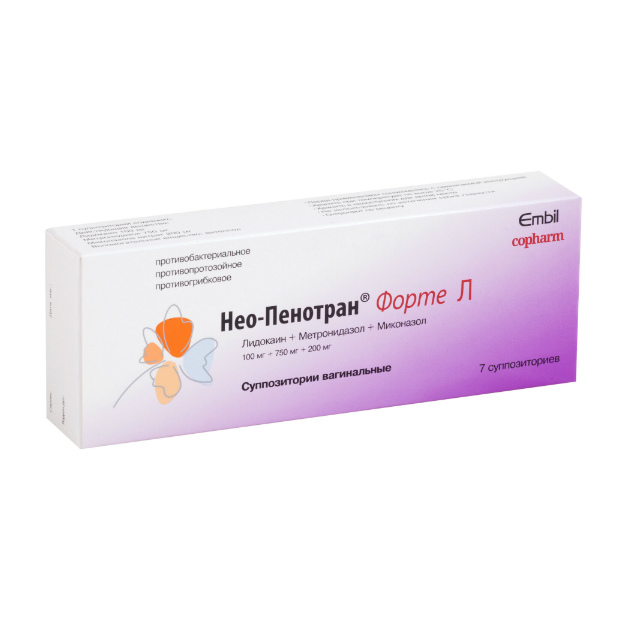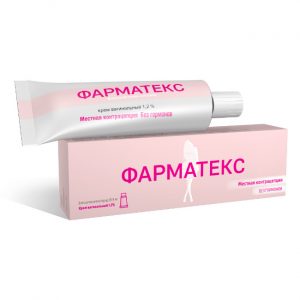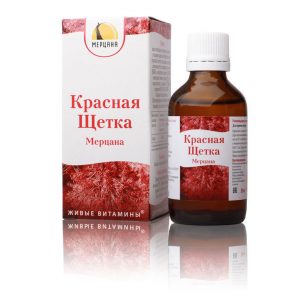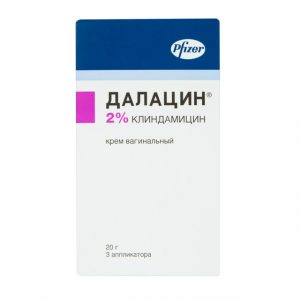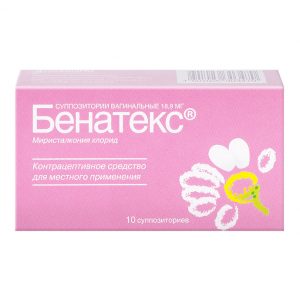Description
Latin name
Neo-Penotran Forte L
Packing
7 pcs
Pharmacological action
Suppositories Neo-Penotran ® Forte L contain miconazole, which has an antifungal effect, metronidazole, which has an antibacterial and antitrichomonas effect, and lidocaine, which gives a local anesthetic effect.
Miconazole, a synthetic derivative of imidazole, has antifungal activity and has a wide spectrum of action. It is especially effective against pathogenic fungi, including Candida albicans. Moreover, miconazole is effective against gram-positive bacteria. The action of miconazole is the synthesis of ergosterol in the cytoplasmic membrane. Miconazole alters the permeability of Candida species mycotic cells and inhibits in vitro glucose uptake.
Metronidazole, a 5-nitroimidazole derivative, is an antiprotozoal and antibacterial agent effective against several infections caused by anaerobic bacteria and protozoa, such as Trichomonas vaginalis, Gardnerella vaginalis and anaerobic bacteria anaerobic streptococci. Miconazole and metronidazole do not have a synergistic or antagonistic effect while taking it.
Lidocaine stabilizes the neural membrane by inhibiting the ion fluxes necessary for the generation and conduction of impulses, thereby providing a local anesthetic effect.
Indications
vaginal candidiasis caused by Candida albicans
bacterial vaginitis caused by anaerobic bacteria and Gardnerella vaginalis, Trichomonas vaginitis caused by Trichomonas vaginalis
mixed vaginal infections.
Contraindications
I trimester of pregnancy
porphyria
epilepsy
severe liver dysfunction
hypersensitivity to the drug Neo-Penotran Forte L.
Pregnancy and lactation
Metronidazole and lidocaine belong to category B, miconazole to category C. After the first trimester of pregnancy, Neo-Penotran Forte-L can be used under medical supervision in cases where the intended benefit outweighs the potential risk to the fetus .
Breastfeeding should be discontinued, as metronidazole passes into breast milk. Feeding can be resumed 24-48 hours after the end of treatment. It is not known whether lidocaine passes into breast milk. A nursing woman should take lidocaine with caution.
Composition
1 suppository contains:
Active ingredients: metronidazole micronized 750 mg, miconazole nitrate micronized 200 mg, lidocaine 100 mg
Excipients: vitepsol – 1436.75 mg.
Dosage and administration of
Intravaginally. Suppositories should be administered in a prone position, deep in the vagina.
Unless otherwise recommended by a doctor, 1 suppository is administered deep into the vagina overnight for 7 days.
In case of recurrent disease or vaginitis resistant to other treatment, it is recommended to extend the course of treatment up to 14 days.
Side effects of
In rare cases, hypersensitivity reactions (skin rashes) and side effects such as abdominal pain, headache, vaginal itching, burning and vaginal irritation are observed.
The incidence of systemic side effects is very low, because with vaginal administration of metronidazole contained in the neo-Penotran Forte-L vaginal suppositories, the plasma concentration of metronidazole is very low (2-12% compared with oral administration).
Miconazole nitrate, like all other antifungal agents based on imidazole derivatives that are introduced into the vagina, can cause vaginal irritation (burning, itching) (2-6%). Such symptoms can be eliminated by the local anesthetic effect of lidocaine. In case of severe irritation, treatment should be discontinued.
Side effects due to systemic use of metronidazole include hypersensitivity reactions (rarely), leukopenia, ataxia, psychoemotional disturbances, peripheral neuropathy with overdose and prolonged use, diarrhea convulsions (rare), constipation, dizziness, headache, loss of appetite, nausea , vomiting, pain or cramping in the abdominal cavity, change in taste (rarely), dry mouth, metallic or unpleasant aftertaste, increased fatigue. These side effects occur in extremely rare cases, since blood levels of metronidazole with intravaginal administration are very low.
Drug Interaction
The following interactions may be noted as a result of metronidazole absorption.
Alcohol: Disulfiram-like reactions.
Oral anticoagulants: enhancement of anticoagulation effect.
Phenytoin: Increase of phenytoin level and decrease of metronidazole level in blood.
Phenobarbital: Reduced blood levels of metronidazole.
Disulfiram: Possible changes from the CNS (for example, mental reactions).
Cimetidine: It is possible to increase the level of metronidazole in the blood and therefore increase the risk of neurological side effects.
Lithium: Increased lithium toxicity.
Astemizole and terfenadine: metronidazole and miconazole inhibit the metabolism of these compounds and increase their plasma concentrations.
Influence on blood levels of liver enzymes, glucose (when determined by its hexokinase method), theophylline and procainamide is observed.
Overdose
Symptoms: nausea, vomiting, abdominal pain, diarrhea, itching, metallic taste in the mouth, ataxia, paresthesia, convulsions, leukopenia, darkening of the urine. Symptoms of an overdose of miconazole nitrate are nausea, vomiting, dryness in the larynx and mouth, anorexia, headache, diarrhea.
Treatment: if you accidentally take a large dose of the drug, you can do a stomach wash if necessary. No special antidote applied symptomatic treatment. Treatment should be given to individuals who have received a dose of 12 g of metronidazole.
Storage conditions
Store the drug at a temperature not exceeding 25 ° C. Do not store in the refrigerator. Store in the original packaging.
Expiration
2 years.
dosage form
dosage form
vaginal suppositories
Embil Farmatseutikal, Turkey
